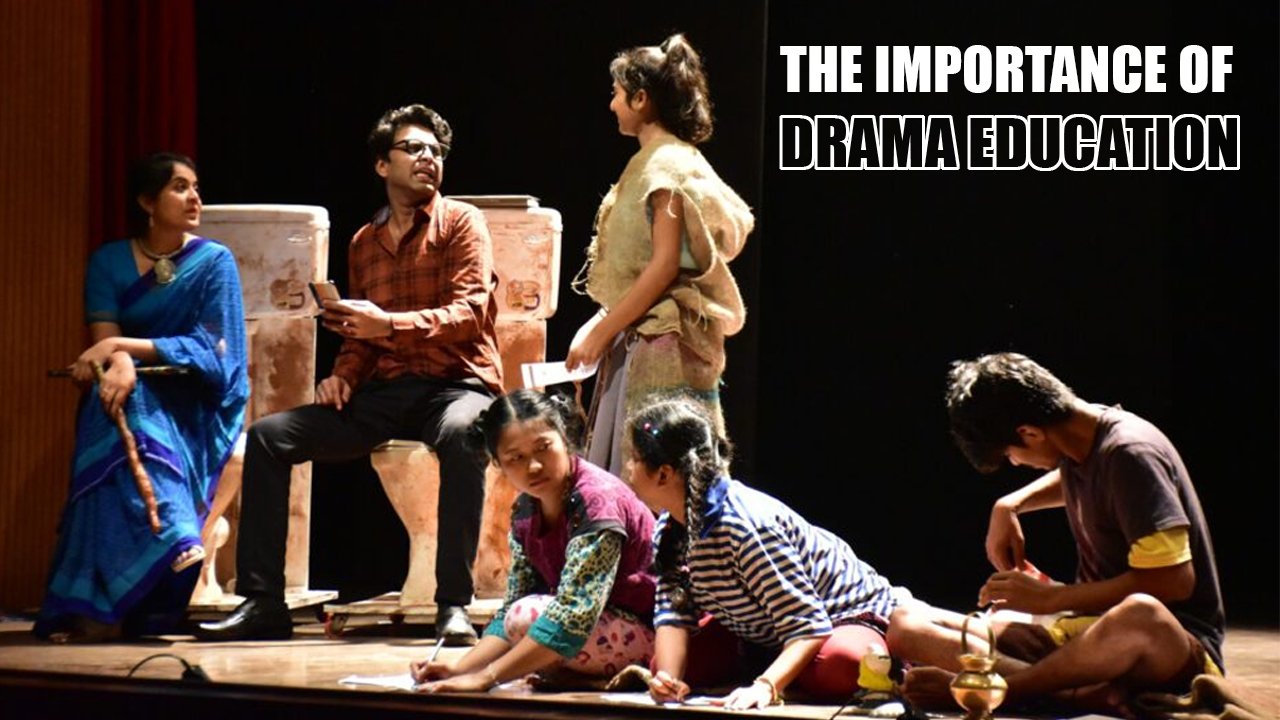Blog

The Importance of Drama Education
Dramatic Arts education is an important means of stimulating Creativity in problem solving. It can CHALLENGE STUDENTS' PERCEPTIONS about their world and about themselves. In order to create a higher global, memorize physics formulas, maths equations, and poems, and the organs of a human frame aren't always enough. It is vital to apprehend what our global is all about. And it's also crucial to be self-assured and creative, have empathy and verbal exchange skills, and collaborate with others. Discover ways to concentrate, recognize ways to remedy problems, consider every other, be disciplined, have amusement on occasion and loosen up at others, and have a robust memory. Be aware of social issues, and admire the arts. In order to do all this, one has to comply with drama training that has a physical, emotional, and social effect on us.
Drama Education is divided into steps that lead to success.
The blend of Drama, Art, and Education has been there since the time Plato started his Academy. He believed that informing a student just about the concept is not enough, a good teacher has to induce the ability of critical thinking and the importance of value education in a student. Drama and Theatre both are pivotal outlets for self-expression and using drama as a teaching tool. Students are involved in every way, be it intellectually, physically, socially or emotionally. The use of drama and art in education leads to holistic learning, accelerates personality development and imparts students with crucial life skills, problem-solving skills, leadership, cooperation and collaboration. Through this blog, we will see the importance of Drama and Art in education, their benefits, role and objectives in the learning process.
Self-Confidence
Taking risks in class and performing for an audience teaches students to trust their ideas and abilities. The confidence gained in drama applies to school, university, careers, and life in general.
Imagination
Making innovative choices, questioning of latest ideas, and deciphering acquainted fabric in new methods is vital to drama.
Empathy
Acting roles from different situations, time periods, and cultures promote compassion and tolerance for others’ feelings and viewpoints.
Cooperation & Collaboration
Theatre combines the creative ideas and abilities of its participants. This cooperative process includes discussing, negotiating, rehearsing, and performing.
Concentration Skills
Drama enhances verbal and nonverbal expression of ideas. It improves voice projection, articulation of words, fluency with language, and persuasive speech. Listening and observation skills develop by playing drama games, being an audience, rehearsing, and performing.
Problem-solving
Students learn how to communicate the who, what, where, and why to the audience. Improvisation fosters quick-thinking solutions, which leads to greater adaptability in life.
Fun
Drama brings play, humor, and laughter to learning; this improves motivation and reduces stress.
Emotional Outlet
Pretend play and drama games allow students to express a range of emotions. Aggression and tension are released in a safe, controlled environment, reducing antisocial behaviors.
Relaxation
Many drama activities reduce stress by releasing mental, physical, and emotional tension.
Self-discipline
The process of moving from ideas to actions to performances teaches the value of practice and perseverance. Drama games and creative movement improve self-control.
Trust
Social interaction and risk-taking in drama develop trust in self, others, and the process.
Physical Fitness
Movement in drama improves flexibility, coordination, balance, and control.
Memory
Rehearsing and performing words, movements, and cues strengthens this skill like a muscle.
Social Awareness
Legends, myths, poems, stories, and plays used in drama teach students about social issues and conflicts from cultures – past and present – all over the world.
Aesthetic Appreciation
Participating in and viewing theatre raises the appreciation for the art form. It is important to raise a generation that understands and values. And supports a theatre’s place in society.
Finally and most importantly, a drama-empowered school environment. Keeps learners majorly immersed in a creative-based mode of learning, which every study has shown – develops them much more holistically. Helps them to perform better academically, and genuinely prepares them to be future-ready.
https://nigelakkara.com/ways-to-improve-writing-skills/
https://kfmindia.in/blogs/best-shares-to-invest-in-2022-in-india/